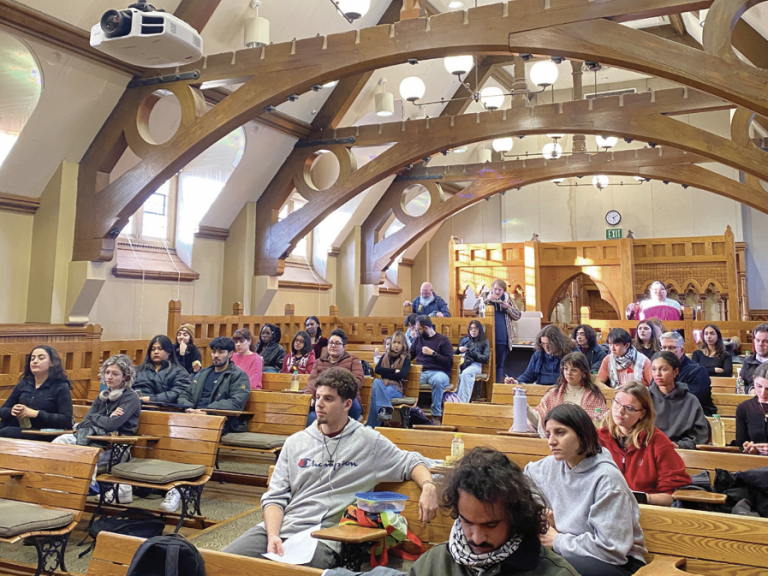Savannah Brooks ‘26
Staff Writer
On Tuesday, New York Times journalist, Yale Law School professor, and Pulitzer Prize winner Linda Greenhouse visited Trinity to give a lecture titled, “A Rogue Court in a Fragile Democracy,” sponsored by the Political Science Department. The lecture was originally scheduled before the pandemic; however, due to delays, the event was postponed until now.
Greenhouse, who covered the Supreme Court for the Timesfor almost 30 years, focused on the effects of the June Dobbs v. Jacksonruling which overturned Roe v. Wadein a 4-3 vote. She cited Justice Samuel Alito’s majority opinion several times, calling it “arrogant and disingenuous.”
Aside from Dobbs, Greenhouse touched on several other recent cases including the current cases regarding affirmative action that were argued the day before the lecture. These cases involved both Harvard and the University of North Carolina-Chapel Hill. According to Greenhouse, it is likely that the Court will decide to overturn affirmative action which was established in Regents of the University of California v. Bakke (1978). She used current cases to comment on the Court’s current justices, holding that the recent addition of Kentaji Brown Jackson added a key aspect of diversity to the court; Greenhouse pointed out that Jackson is the only Protestant on the Court and elaborated on how her unique perspective as a Black female Protestant justice could change other justices’ perspectives on courses regarding race or religion.
To further illustrate the truly uncommon position the Supreme Court has in the U.S. today, Greenhouse spoke on numerous eras of the Court throughout her lecture from the Warren Court to the current Roberts Court. She demonstrated her illustrious expertise by commenting on Court trends and how the court today is thought of as much less legitimate in terms of public opinion than it has ever been, particularly due to the country’s youth. She also touched on how the Court often tends to lag behind public opinion, citing how it was often difficult for LGBTQ+ rights groups in particular to actually find a plaintiff who had been arrested for being gay in Lawrence v. Texas(2003). Now, with Dobbs, the court is actively acting against public opinion.
Greenhouse had little reassurance for citizens and only encouraged the crowd to follow news about the Court and to pay attention to the elections they were voting in. She acknowledged court-packing as a possible solution to the Court but warned that it may be taken too far. Greenhouse also suggested visiting the Supreme Court website and listening to live arguments or reading past transcripts to be aware of arguments and what is happening with current court cases.
If you’re interested in reading Greenhouse’s works about the Court, you can visit her page on The New York Times website or read one of her several published books including Justice on the Brink published last year. To keep up on the status of the Supreme Court, you can visit www.supremecourt.gov.







+ There are no comments
Add yours